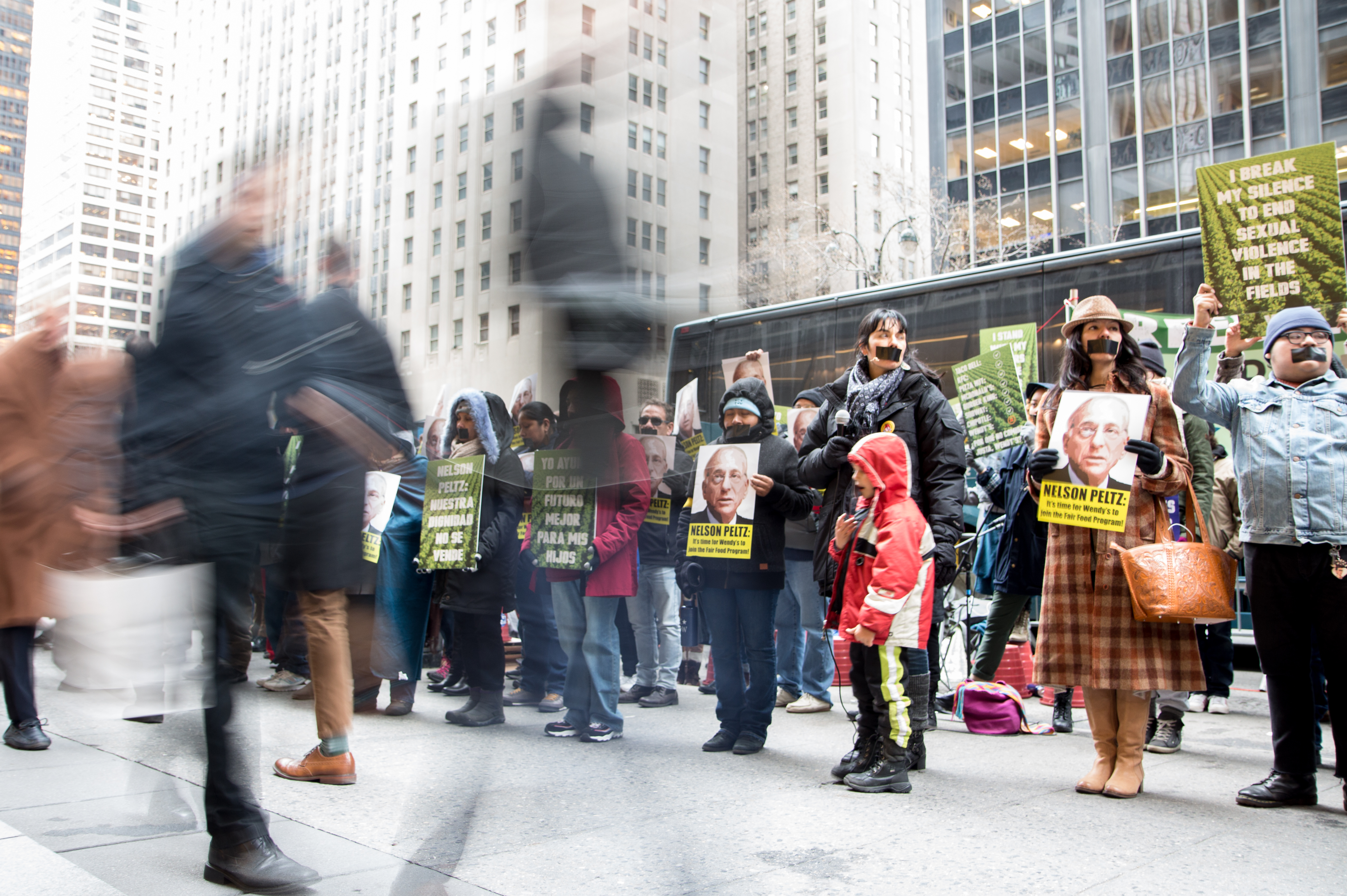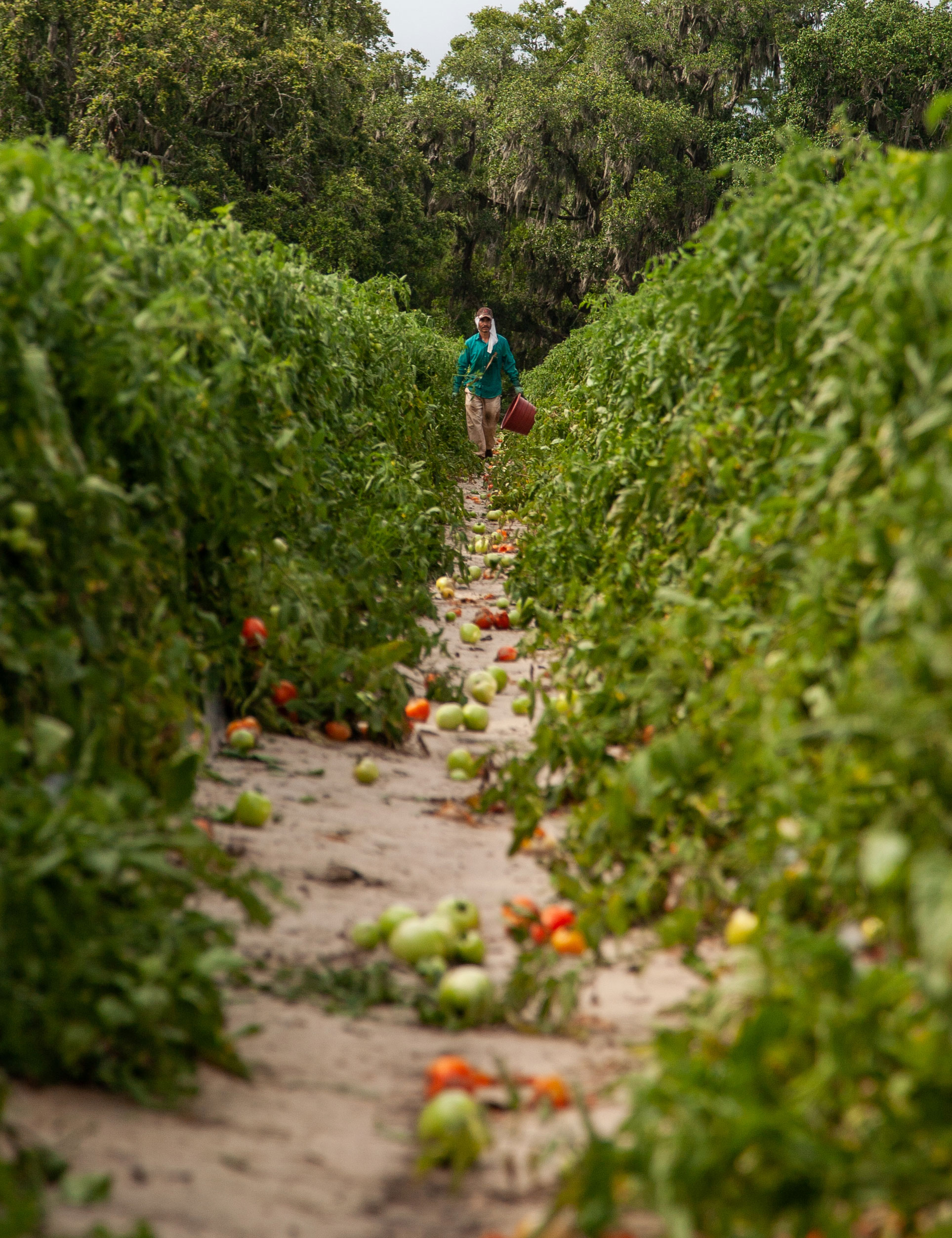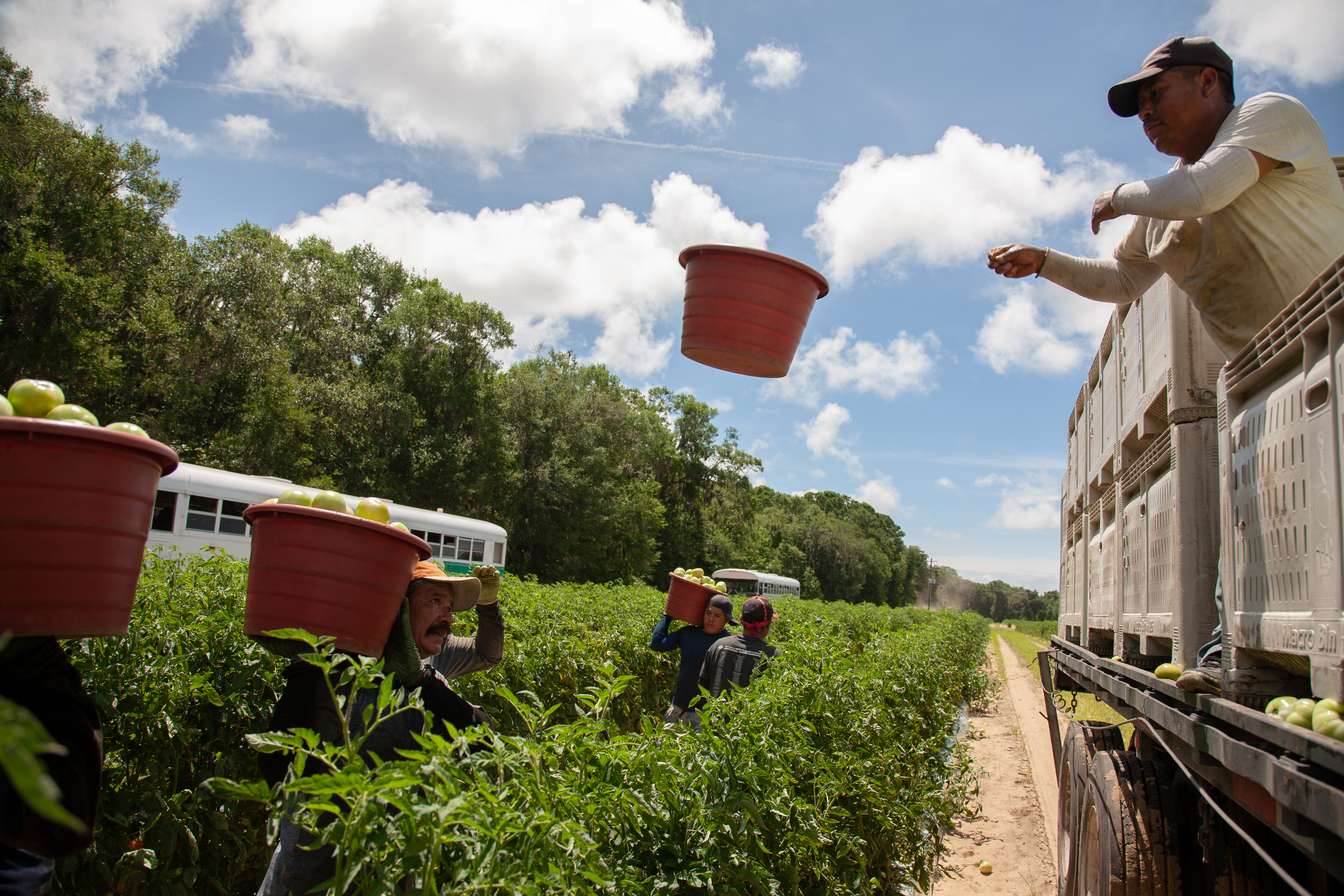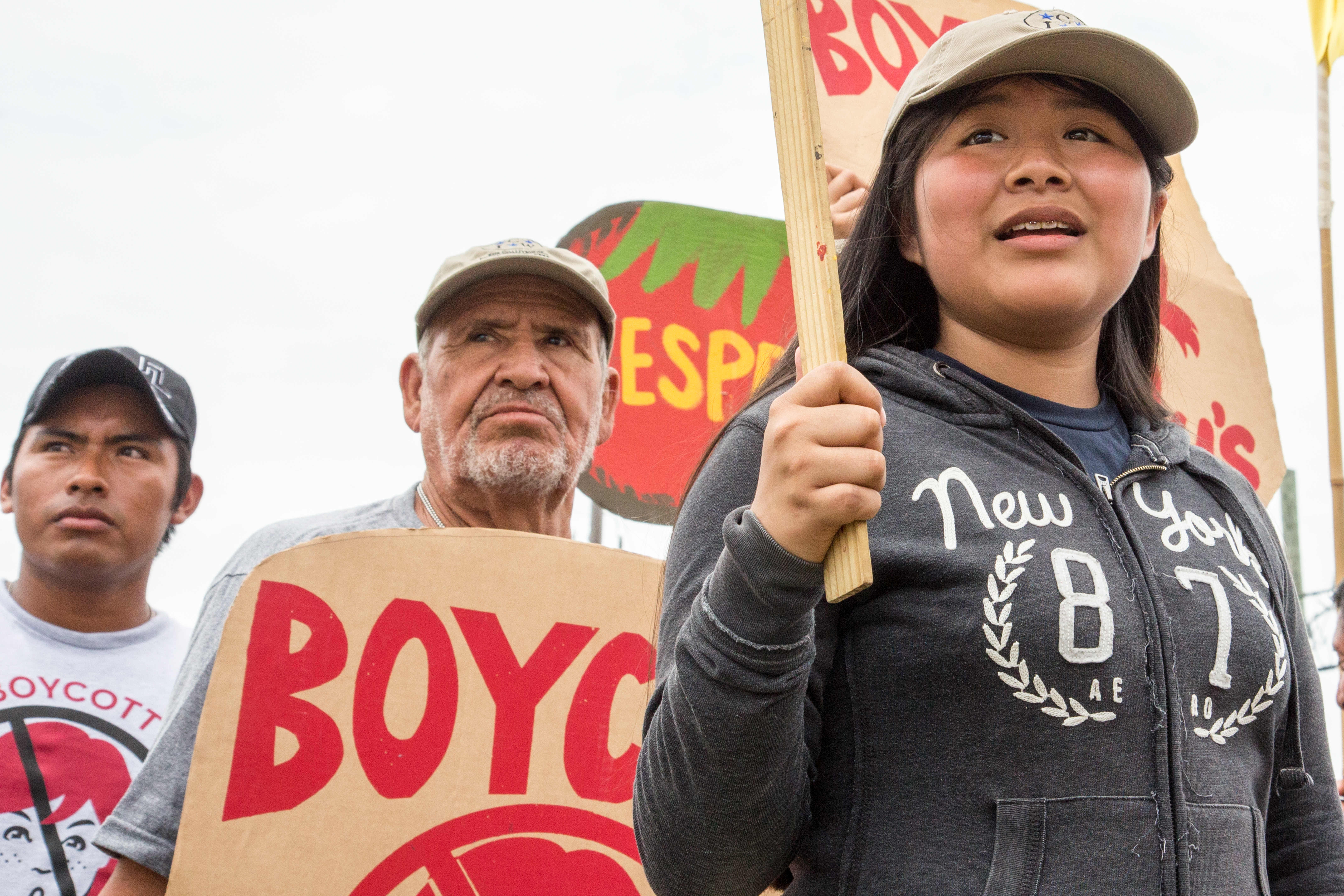
[image caption]
Student Spotlight: Vera L. Chang
Vera L. Chang, a fourth year PhD student in the Department of Environmental Science, Policy, and Management, researches human trafficking, forced labor, and sexual assault of workers within United States agri-food systems. In her doctoral work, Chang investigates ways in which systems can be made safer, healthier, and fairer for the people who pick, pack, and process food. She has written on social, agricultural, and environmental issues in such outlets as the Guardian, Food & Wine, and Bitch magazine. Chang also collaborates with the Berkeley Food Institute on research on labor conditions in commercial farming and is a National Science Foundation Fellow and Clif Bar Family Foundation Fellow. She recently completed a Solutions Journalism Network Fellowship.

[image caption]
1) How did your path before Berkeley lead you to focus on agri-food systems and social justice?
When I graduated from Carleton College, I did an apprenticeship in agroecology at the University of California, Santa Cruz. I wanted to learn more about the industrial food system, and a nearby commercial farmer allowed me to work with farmworkers in his strawberry fields. While hoeing weeds alongside some women, I learned that farmworker attire was improvised personal protective equipment. Workers covered their faces with handkerchiefs to shield themselves from pesticides, and they wrapped shirts around their waists to guard themselves from sexual harassment. Their accounts revealed troubling daily challenges of hidden violence, poverty, and low wages within industrial agriculture.
Working in the furrows led me to probe the normalized injustice that is consequential yet hidden in our food system. After my farm apprenticeship, I joined Bon Appétit Management Company as a fellow to investigate production practices within the food service company’s $1 billion supply chain. At Bon Appétit, I developed projects that measured the company’s food waste, researched farm innovations informed by animal welfare standards, and surveyed labor practices among farm suppliers.
A big project that influenced my current work was managing, researching, and co-authoring an investigative 65-page report that would provide the most comprehensive picture of U.S. farmworker conditions at that time. Our research uncovered even larger and more troubling issues than we anticipated—the extent of farmworkers’ dangerous conditions, exclusions from protections, and lack of legal recourse was shocking, and we found an appalling dearth of data on farmworkers, suggesting that the few protections that exist are rarely regulated or enforced. The Inventory received significant praise, but I have remained unsettled by the lack of meaningful scholarly, policy, and public attention to possibilities for transformation in U.S. agriculture. This inspired my decision to pursue academic research.

[image caption]
2) Your reporting has been highlighted by Mother Jones Food, LA Weekly, and the Aspen Institute. Can you talk about some past journalistic projects?
While learning about food systems, I’ve undertaken freelance journalistic projects that critically investigate invisible social and environmental problems. I value the way that reporting provides insights and information for oneself and the public, and it’s been exciting to speak with and learn from others.
One favorite interview was a 2013 Bitch magazine profile of critical food geographer, Dr. Breeze Harper, who argues that our food choices are linked with race, class, health, sex, sexual orientation, social justice, and freedom—what we eat influences our relationships with others in the food chain, with socioecological landscapes, and, fundamentally, ourselves. Harper was among a handful of scholars I met whose thinking and work inspired me to pursue doctoral studies to deepen my awareness of systems rooted in inequity, how they invisibly pervade society, and how, with knowledge, we can work to undo oppression.
Another favorite piece was a 2016 Civil Eats interview with Eric Toensmeier, author of The Carbon Farming Solution, who explained that agriculture is not only a contributor to the climate crisis but also a potential solution to it because of its immense potential to reduce fossil fuel emissions. Toensmeier argues that carbon farming can return carbon dioxide in our atmosphere to reach the “magic number” of 350 parts per million, so that feeding people and building ecosystems health can co-occur. I got chills reading Toensmeier’s book and speaking with him solidified my commitment to seek solutions to our social and environmental crises that are in partnership with and guided by communities and ecologies, rather than investing in the commonly-deployed technocratic solutions that are viewed as silver bullets but often fail.
3) Your reporting also connects with your doctoral research. Can you tell us about some of these pieces?
A Civil Eats exposé I wrote in 2015 revealed that protections for dairy workers were nearly non-existent within Vermont’s $2.2 billion dairy industry. My research for the article was disturbing: similar to the crop worker conditions I found when researching the Inventory, dairy workers had little to no enforcement of existing health and safety laws, wage and hour laws, or housing codes. A month after my article was released, Ben & Jerry’s made a ground-breaking commitment to negotiate with Migrant Justice, a dairy worker-led organization that had been campaigning for years to launch their own human rights program, Milk with Dignity. This demonstrated firsthand to me that reporting on important issues can have tangible effects on the world.
Since working alongside the farmworkers in strawberry fields, I’ve remained concerned about women workers. My 2018 Civil Eats piece covered the Coalition of Immokalee Workers' Fair Food Program that has nearly eliminated sexual assault on farms in seven states where 35,000 farmworkers labor. Then, through the Solutions Journalism Network #MeToo Fellowship, I was able to write a follow-up long-form investigative article in 2019 that provides a window into the problems as well as solutions to chronic abuse against workers in corporate supply chains. My fellowship taught me how reporting can clarify issues, the processes of accountability, and constructive action. Aligned with the tenets of solutions journalism, I want my research and writing to allow people to imagine other lives and to realize that a more just future is possible.

[image caption]
4) From your research and reporting, how do you view the novel coronavirus pandemic as impacting farmworkers?
In the last few months, the COVID-19 epidemic has revealed the callous endangerment of farm and food workers, now labeled essential workers. A recent Guardian op-ed I co-authored draws attention to the workers’ simultaneous indispensability and disposability during the pandemic. As a dairy worker organizer explained: “We’re in a country where people want our labor but don’t care about our lives. Our human rights have been denied, but our work is being deemed essential.” Within the current public health crisis, it is clearer than ever that society’s health is linked to the health of its workers. Their voice, well-being, and human and labor rights are critical for our welfare and survival.
5) Are you involved with any groups on campus, and what are some of your hobbies?
I’ve served as a mentor with University of California Berkeley’s Environmentalists of Color Mentorship program. This initiative within Students of Color Environmental Collective's (SCEC) #EnvironmentalismSoWhite campaign pairs undergraduates of color with environmental professionals of color. The program seeks to equip future leaders to fight against environmental destruction and advance environmental justice, empower underserved and underrepresented communities to influence the environmental movement, and foster inclusion and diversity within Rausser College. Engagement in the program has been exciting. Last year, I loved working with former SCEC leader Kelly Chang (no relation), who is now UC Berkeley’s Educational Technology Services’ program manager. It’s gratifying and an honor to witness, play a part in, and help nurture upcoming environmental activists of color’s personal and professional goals so that they can become the leaders they seek to be.
Outside of my work on campus, I love gardening (recently boule d’or melons), wild foraging (recently nettles), cooking (recently watermelon pickles inspired by Usha’s Pickle Digest), and supporting local food businesses (recently Grocery Café). I’m also into hiking and dancing.
6) What are your career goals after graduation?
As an emerging scholar, I want to link theoretical knowledge with tangible change to contribute to the well-being of society and the environment. Within academia, I want to expand the boundaries of social science scholarship. Since reading Michael Burawoy’s inspiring 2004 essay, “For Public Sociology” in my first year at Berkeley, one key question has guided me and my work: For whom and for what are we researching, and what are the wider societal impacts of our work? Public sociology is a discipline but also a goal—to make public issues out of private troubles, to take knowledge back to those from whom it came, and to be of service to communities. After completing my doctoral studies, I see myself combining research, teaching, and advocacy. I plan to continue researching and reporting on solutions to global social and environmental problems. I also want to facilitate a pipeline in higher education for students of color, low-income students, and undocumented students. And I will advocate for equality in all spheres of society.
Do you know of a student or group in Rausser College involved in noteworthy research, community outreach, or extracurricular activities? Let us know by submitting a suggestion with this nomination form.

